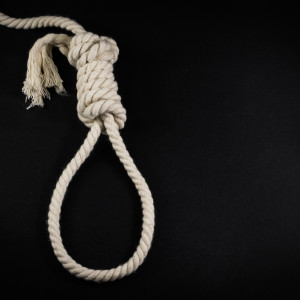What’s happening in Utah – one of the most conservative states in America – is further proof that conservatives have hit a turning point on the death penalty and are now rejecting the questionable practice in ever increasing numbers. Last Tuesday, and then again on Wednesday, the Republican-dominated Utah state senate voted to repeal capital punishment. This coming week, the measure goes to the state house.
The Republican-backed effort to end the death penalty in Utah is the latest development in what has become an unmistakable nationwide movement.
More and more, conservatives are coming to realize the death penalty is an affront to their own values. It is a disastrous policy that allows men to play God, fails at its goal of preventing crimes, wastes taxpayers’ hard-earned money, has almost certainly been responsible for killing innocent Americans and empowers government with the authority to kill its own citizens.
Last year, Nebraska’s conservative Republican legislature voted to end the death penalty in the Cornhusker State, even overriding their own Republican governor to do so. In addition to Utah and Nebraska, an unprecedented number of GOP lawmakers in Kansas, Kentucky, Ohio, Wyoming, Montana, Utah, South Dakota, New Hampshire and Missouri have also taken the lead in sponsoring death penalty repeal bills in recent months.
Many Evangelicals are reconsidering the death penalty because it simply does not align with their beliefs, and conservative Republican legislatures taking action across the country are echoing that in support of their actions.
Late last year, the National Association of Evangelicals changed its 40 year position of exclusive support for the death penalty. National Evangelical leader Jay Sekulow of the American Center for Law & Justice announced he opposes the death penalty because, “The one thing my faith teaches me [is] I don’t get to play God. I think you are short-cutting the whole process of redemption…I don’t want to be the person that stops that process from taking place.”
Further, conservatives who value life are increasingly uneasy with the risk of executing innocent people. To date, 156 people have been freed from America’s death rows due to wrongful convictions and an untold number of Americans have been unjustly executed.
Fiscal conservative opposition to the death penalty is growing quickly, as well. Taxpayers pay a heavy price for the death penalty. Capital trials are much more expensive than trials with life without parole as the punishment. In California, for example, death penalty cases cost 20 times more to try than similar non-death penalty trials. The cost of housing prisoners on death row is about $30 a day more than an inmate serving a life sentence in most states, or more than $270,000 per prisoner over the span of 25 years. Clearly, eliminating the death penalty would save taxpayers millions.
To make matters worse, despite the death penalty’s exorbitant cost, it is failing at its only real job: preventing crimes. It turns out that states with capital punishment actually have higher murder rates than those without the death penalty. Violent crime statistics indicate that the prospect of life without parole appears to be a greater deterrent than the threat of death.
The death penalty has risked innocent life, failed to deter crimes and wasted billions of hard-earned tax dollars and gives government the power to kill its own citizens, with nothing to show for it. This is not the type of limited, responsible government program that conservatives hold dear.
In Utah, Nebraska, and in other conservative Republican state legislatures around the nation, lawmakers have begun to understand that the death penalty simply doesn’t correlate with their conservative principles. That helps to explain why conservative views are changing – and changing for the better – when it comes to the death penalty.

